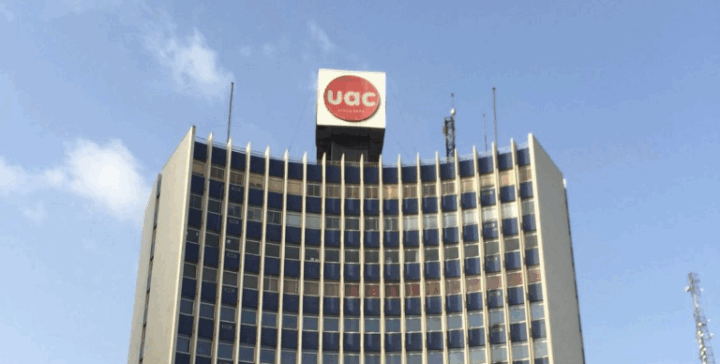United Africa Company (UAC) has confirmed the acquisition of the Chivita and Hollandia beverage brands from the Coca‑Cola Group, marking a pivotal expansion of its portfolio into fruit juice and dairy variants. The move, representing a significant shift in Nigeria’s consumer goods landscape, reinforces UAC’s ambition to deepen local value chains and expand its foothold in the fast-moving consumer goods (FMCG) sector.
UAC’s Managing Director described the acquisition as transformative: by bringing Chivita and Hollandia under its umbrella, the company now controls a broader range of beverage offerings—from fruit juices and smoothies to probiotic dairy drinks—enabling a more holistic market approach. The brands are expected to retain their current production facilities, which UAC will now manage. This includes Coldstone Dairy’s plant in Ogun State and Chivita’s fruit processing units, ensuring continuity of operations and employment.

The integration of these brands is anticipated to accelerate product innovation and supply chain synergies. With existing agricultural linkages to fruit farmers and distribution channels, UAC intends to streamline procurement and reduce dependence on imports. The firm said it plans to enhance output efficiency and packaging standards by leveraging its existing infrastructure across logistics, retail partnerships, and export corridors.
Analysts welcomed the acquisition as a strategic alignment of Nigeria’s industrial and consumer sectors. By consolidating juice and dairy brands under a locally anchored company, UAC is positioned to drive greater economic value to upstream producers, while also benefiting from stronger revenue retention at the manufacturing level. Observers noted the acquisition could foster innovation in beverage formats—such as fortified juices or localized flavors—tailored to consumer preferences in West Africa.
Operationally, UAC confirmed that management continuity and workforce retention are priorities. Employees from the Coca‑Cola subsidiaries will retain their roles under the new ownership, with UAC outlining future training programs to align them with the company’s broader quality and productivity standards. Upgrades to cold chain logistics, analytical control systems, and product tracing technologies are also planned to ensure consistency and safety.
From a regulatory standpoint, UAC obtained clearance from sector agencies including the Securities and Exchange Commission (SEC) and the National Agency for Food and Drug Administration and Control (NAFDAC). The acquisition complied with antitrust provisions, particularly with respect to competitive beverage retail markets. In response to public concerns about pricing or local dominance, UAC emphasized its commitment to consumer pricing stability and inclusive market access.
The company’s finance team noted that the acquisition was funded through a mix of retained earnings, long-term bank financing, and equity placement agreements. Although the financial outlay is significant in scale, UAC emphasized that the transaction is aligned with its medium-term growth strategy, targeting profitable expansion in the domestic consumer goods space.
While acknowledging the acquisition’s positive impact, market watchers issued a few caveats. Firstly, competition from entrenched multinational rivals in beverage production remains intense. UAC will need innovative marketing, strong brand positioning, and product adaptation to retain and grow market shares. Secondly, consistency in raw materials—particularly fruit availability affected by seasonal fluctuations—remains a supply-chain risk. UAC management said it is increasing collaboration with local farmers and agricultural clusters to support reliability and volume predictability.
In the longer term, UAC intends to explore export opportunities for Chivita and Hollandia formulations—particularly within the ECOWAS region and to diaspora markets abroad. Regulatory alignment under AfCFTA frameworks could open doors for wider distribution. Already, UAC is conducting trials in packaging formats and export-ready labeling for regional market entry.
Consumer groups broadly applauded the development. Advocacy network leaders said that the deal shows confidence in Nigeria’s manufacturing potential. They also urged UAC to ensure affordability and access, particularly in lower-income consumer segments where beverage consumption is price-sensitive.
Beyond the acquisition itself, the move aligns with national industrial policy objectives. The Federal Government has prioritized local content growth, value addition, and import-substitution strategies. UAC’s integration of Chivita and Hollandia is seen as advancing these goals—delivering vocational employment, empowering agro-hubs, and reducing imported juice dependency.
The group’s appetite for further diversification was also signaled. UAC is reportedly exploring complementary acquisitions or partnerships in categories like processed foods, dairy derivatives, and health-focused branded products. Discussions are said to include instant meals, fortified cereals, and cold‑chain distribution networks.
In summary, UAC’s acquisition of Chivita and Hollandia from Coca‑Cola marks a milestone in Nigeria’s FMCG restructuring. By anchoring distinctive brands within a trusted local operator, the transaction promises to catalyse agricultural productivity, support manufacturing growth, and deepen consumer goods innovation. As UAC executes integration efforts, the success of the deal will ultimately depend on efficient operations, strategic branding, and market responsiveness.
Support InfoStride News' Credible Journalism: Only credible journalism can guarantee a fair, accountable and transparent society, including democracy and government. It involves a lot of efforts and money. We need your support. Click here to Donate
